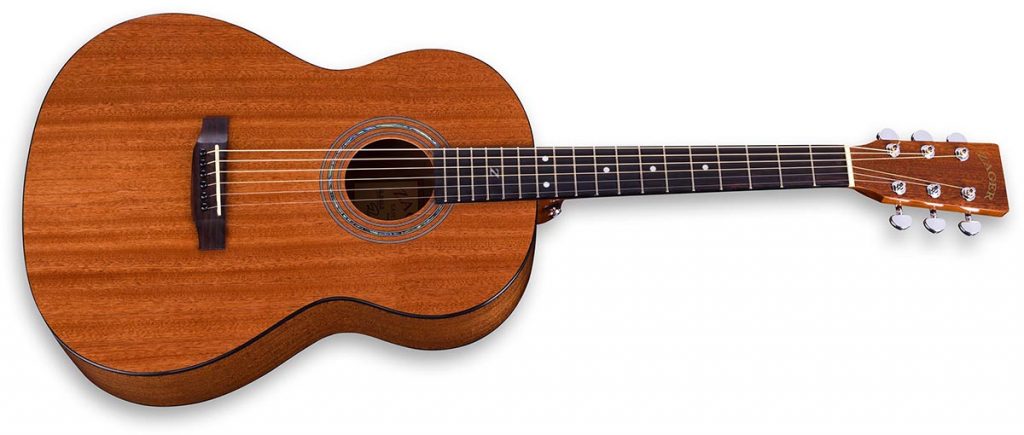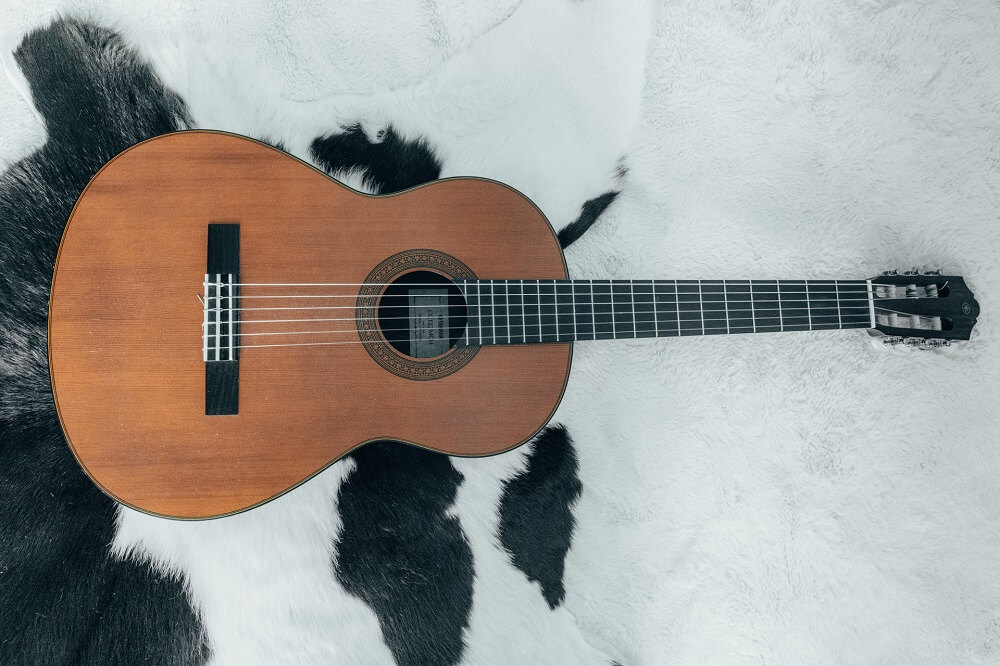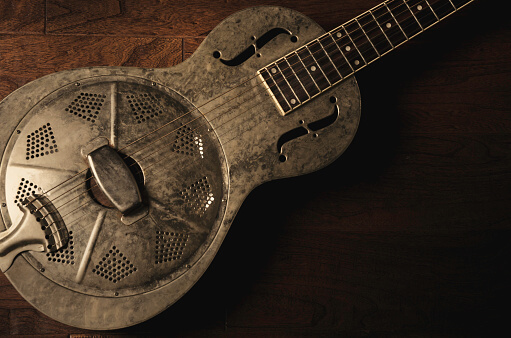How many frets does a guitar have?
Such a question has probably been thought of by every guitarist that has ever lived, and while the answer may seem simple, there is actually some debate about it.
People usually get confused with the terms “short scale” and “long scale,” technically, a guitar can have a big number of frets and still be considered a short-scale guitar.
Now, is there any difference between having a few frets and too many? Does it affect your guitar tone at all?
Let’s take a closer look at this question and dig a little deeper to find out the answer!
Table of Contents
How many frets does a guitar have?
The quick answer is that most guitars have either 21, 22, or 24 frets. This number of frets affects the range of notes that the instrument is able to produce. Some guitarists prefer the extra range that comes with 24 frets, while others find that 21 or 22 is plenty.
For instance, a guitar with 21 frets can play up to two octaves and a third (21 notes), while a guitar with 24 frets can play three full octaves (24 notes).
The extra frets simply extend the range of notes that the guitar is able to reach.
So, does having more frets make a guitar sound better? Not necessarily.
It all comes down to what kind of music you want to play; if you’re looking to play lead guitar solos with lots of fast runs and extended note ranges, then having more frets will certainly give you an advantage.
But if you’re mostly playing rhythm guitar parts, then the number of frets won’t make much of a difference.
Ultimately, it’s up to you to decide how many frets you need on your guitar.
If you’re just starting out, you might want to choose a guitar with 21 or 22 frets so that you don’t feel overwhelmed by all the extra notes.
As you become more comfortable with the instrument, you can always upgrade to a guitar with more frets (24 is usually the maximum).
In the end, there is no right or wrong answer to this question, it all comes down to personal preference.
Does the number of frets in a guitar affect its tone?
The number of frets on a guitar does not necessarily affect its tone, in other words, a guitar with fewer frets can sound just as good as a guitar with more frets.
The tone of your guitar is influenced by factors such as the type of wood used, the type of strings, and the way the instrument is played.
Now, with that being said, the number of frets can still affect the playability of the instrument.
Guitars with fewer frets are usually easier to play because the strings don’t need to be pressed down as hard and the width of each fret tends to be bigger.
On the other hand, guitars with more frets can be more challenging to play, but they often have a nicer tone since they’re generally accompanied by a bigger guitar body size.
This video by Marty Music is a great resource for those of you looking to hear the difference between a big and a small acoustic guitar:
I encourage you to watch it completely since he does everything from the unboxing of the guitars to the playing and demoing as well.
If you’re looking to train and test your ears in any way, see if you can tell the sound difference between the two.
What makes a 12-fret guitar different?
A 12 fret guitar is simply a guitar with only 12 frets!
This type of guitar is typically used by beginners because it is easier to learn and play.
The main difference between a 12 fret guitar and other guitars is the range of notes that it can produce.
Any 12 fret guitar can usually only play up to one octave and a fourth (13 notes), whereas a guitar with more frets can play up to three octaves (24 notes).
So, if you’re looking to play lead guitar solos or extended melodies, a 12 fret guitar is not the best option.
However, if you’re mostly playing rhythm guitar parts or simple songs, a 12 fret guitar will be just fine.
In general, 12 fret guitars are less expensive than guitars with more frets, so they are a good option for beginner guitarists who are on a budget.
Do all guitars have the same number of frets?
No, not all guitars have the same number of frets.
As we mentioned earlier, most guitars have either 21, 22, or 24 frets.
However, there are some guitars that have less than 21 frets, and there are also a few guitars that have more than 24 frets.
The number of frets on a guitar is determined by the size of the instrument.
For instance, a guitar with a shorter neck (such as a parlor guitar) will usually have less than 21 frets, while a guitar with a longer neck (such as a baritone guitar) will have more than 24 frets.
The number of frets also affects the range of notes that the guitar can play.
So, if you’re looking for a guitar that can play a wide range of notes, you’ll want to choose an instrument with more frets.
On the other hand, if you’re mostly interested in playing simple melodies or rhythm guitar parts, a guitar with fewer frets will be just fine.
Are all frets the same size on every guitar?
No, not all guitars have the same size frets.
The size of the frets on a guitar can vary from one manufacturer to another, and it can also vary depending on the type of guitar.
In general, electric guitars have larger frets than acoustic guitars, and metal-string acoustic guitars have larger frets than classical guitars.
The size of the frets also affects the playability of the instrument.
Guitars with larger frets are usually easier to play because the strings don’t need to be pressed down as hard to make a sound.
On the other hand, guitars with smaller frets can be more challenging to play, but they often have a nicer tone because the strings are pressed down more tightly.
How many frets does a bass guitar have?
Most bass guitars are no different from regular guitars in terms of fret count.
The vast majority of basses have either 21, 22, or 24 frets.
However, there are some basses that have less than 21 frets, and there are also a few basses that have more than 24 frets.
Usually, bass players are playing low notes, so they don’t need as many frets as guitarists.
However, the number of frets on a bass guitar can still affect the range of notes that the instrument can play.
If you’re looking for a bass guitar that can play a wide range of notes, you’ll want to choose an instrument with more frets.

Source: Reverb.com
What is a “short scale” guitar?
Scale length is the distance from the nut to the bridge, and it’s an important factor in the playability and tone of a guitar.
A short-scale guitar is simply a guitar with a shorter than average scale length.
The most common short-scale guitars are those with a scale length of 24 inches (61 cm).
These instruments are usually designed for younger players or for those with smaller hands.
Short-scale guitars are typically less expensive than regular-scale guitars, and they are also usually easier to play.
However, the shorter scale length can affect the tone of the guitar, making it sound a bit thinner than a regular scale guitar.

If you’re looking for a guitar with a warm, full tone, you might want to choose an instrument with a longer scale length.
Short-scale guitars are typically used by beginners because it is easier to learn and play.

Born and raised in Florida! I’ve been playing guitars for the past 5 years. Love to learn, and I’m always striving to achieve greater heights in music. Currently have a Fender Stratocaster as my main guitar.




